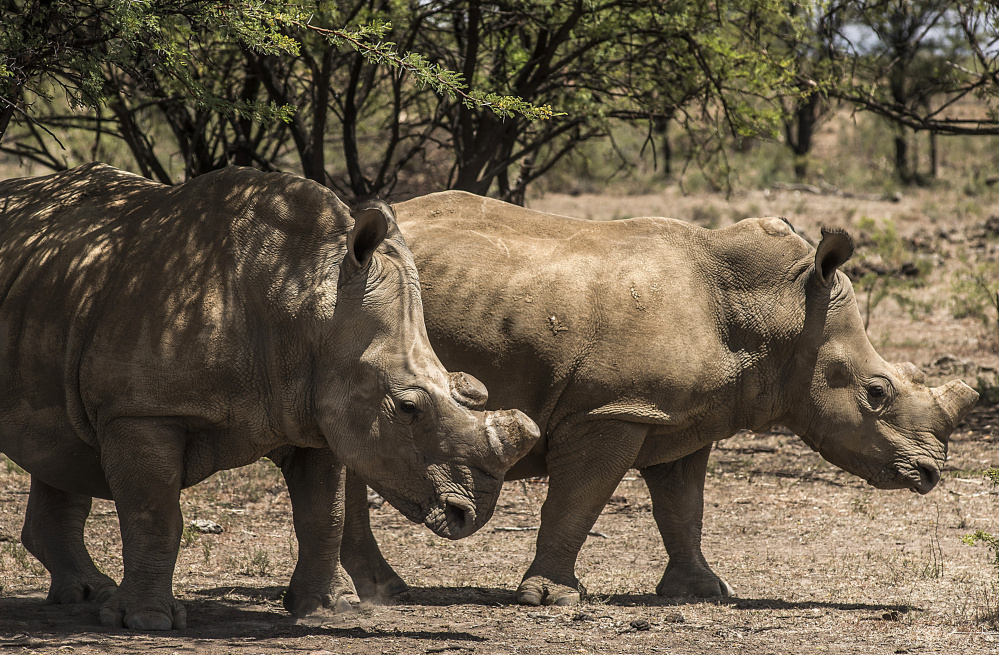The story wasn’t subtle: A poacher attempting to hunt endangered rhinoceroses in South Africa’s Kruger National Park last week was instead trampled to death by an elephant and eaten by a pride of lions. Rangers alerted by his companions sought to recover his body and eventually found a skull and a pair of pants.
It was a comeuppance made for social media. Poetic justice, the natural order at work, a win for the animals — all were common themes, as they’ve been in other, similar incidents.
Karma aside, the would-be poacher also left behind a grieving family — his name and nationality were not immediately released, but reports say he had daughters. The details speak not to a rich man’s pleasure hunt gone bad but to a low-level actor in the global trade in rhino horn and elephant ivory.
“Killing poachers will not stop poaching. Poachers are just the foot soldiers of international criminal syndicates,” said Julian Rademeyer, a project leader for Traffic, which monitors the international trade in wildlife, according to The Associated Press.
“The rage and anger of many people at the rampant poaching that is endangering rhinos and elephants is understandable,” he said. “But the joy and gloating over the death of a poacher is crass and misguided.”
Animal lovers feel a sense of impotence at trophy hunting and other abuses. A wildlife camera recently captured a horrific illegal killing in Alaska of a mother bear and her two screaming cubs. These incidents shouldn’t happen, and when they do there should be consequences. At stake is humankind’s responsibility to act as steward for the planet’s natural environment as well as individual animals. Without protections, entire species may be wiped out in the wild.
As for the rhinos, they die horribly and senselessly. Poachers kill 1,000 African rhinos a year, hacking off their horns with machetes and leaving the animal to bleed to death, to cash in on the lucrative trade in horns in Asia. Yet these coveted horns are merely keratin, no more remarkable than human hair. The ongoing demand for them values myth over science and life, with disastrous results.
The answer globally is a stronger commitment to making and enforcing anti-poaching laws, plus investing in education. In places where these magnificent creatures remain, communities can reap economic benefits through tourism because living wildlife can be worth much more than butchered specimens.
One poacher stopped in his tracks might briefly feel like natural justice. Really, it’s a reminder of the world’s continued failure to do better by its fading species.
Editorial by the Chicago Tribune
Visit the Chicago Tribune at www.chicagotribune.com
Distributed by Tribune Content Agency, LLC.
Send questions/comments to the editors.



Success. Please wait for the page to reload. If the page does not reload within 5 seconds, please refresh the page.
Enter your email and password to access comments.
Hi, to comment on stories you must . This profile is in addition to your subscription and website login.
Already have a commenting profile? .
Invalid username/password.
Please check your email to confirm and complete your registration.
Only subscribers are eligible to post comments. Please subscribe or login first for digital access. Here’s why.
Use the form below to reset your password. When you've submitted your account email, we will send an email with a reset code.